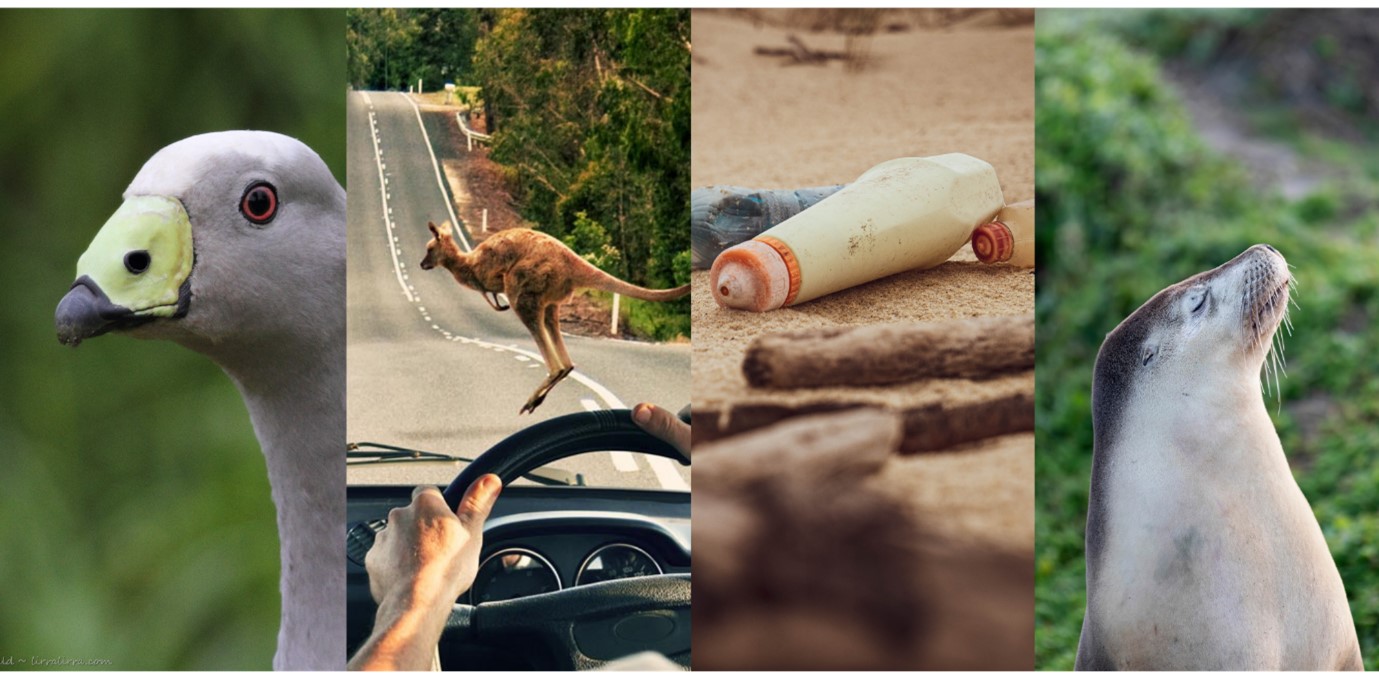
South Australia’s Kangaroo Island, recently rated No 2 ‘must-see’ 2024 holiday destination by Lonely Planet world travel guide, is still recovering from the devastating Black Summer bushfires of 2019-20.
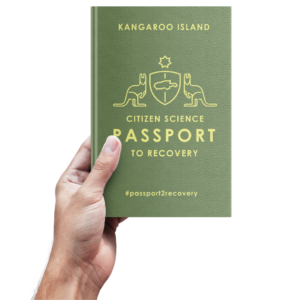 Its flora and fauna are being monitored and supported by the Flinders University’s citizen science ‘Passport 2 Recovery’ (P2R) phone app project – involving Kangaroo Island residents, businesses and visitors to the Island.
Its flora and fauna are being monitored and supported by the Flinders University’s citizen science ‘Passport 2 Recovery’ (P2R) phone app project – involving Kangaroo Island residents, businesses and visitors to the Island.
In its third year, holiday-goers are invited to get on board again this summer with their observation of endangered Australian sea lions, Cape Barren Geese, plastic waste on beaches and also the animals killed by cars.
This adds to the four initial P2R projects already under way – monitoring koala survival (‘Koala Compass’), native bees (‘Smart Nest’), native oysters (‘Reef Rewind’) and vegetation dieback (‘Dirty Boots’).
Flinders University experts are also involved with a novel Koala Life project to encourage healthy koala populations on mainland Australia.
“While visiting this incredible place, people can get involved in a novel citizen science project to help collect important data for the conservation and recovery of wildlife and ecosystems,” says project leader Professor Karen Burke da Silva, from the College of Science and Engineering at Flinders University.
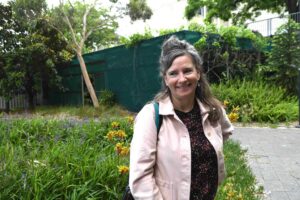
“It’s an ideal way for everyone to ‘Arrive as a tourist and leave as a scientist,’ learning more about the island’s natural features, helping with post-bushfire recovery on Kangaroo Island and collecting data for our research studies.”
For example, visitor observations at Stokes Bay – rated as Australia’s ‘best beach’ by The New York Times this year – can support the Flinders University South Australian microplastics research.
The Debris Detective project asks participant to photograph plastic waste at Stokes and eight other beaches as part of the microplastics monitoring research data collection.
By downloading the free Passport 2 Recovery app via the website, visitors can gain points for every P2R project they support. Points can then be redeemed for discounts at local KI businesses.
A new project in partnership with the Seal Bay Conservation Centre, called Sea Lion Stakeout, will help conservation managers assess the impacts of ecotourism at Seal Bay by recording disturbances of sea lion behaviours as tourists move along the boardwalk.
Sightings of some of KI’s estimated 800 Australian Sea Lions may also be recorded at other locations around the Island. Seal Bay is one of the best locations in the world to view these animals, and attracts more than 100,000 tourists every year.
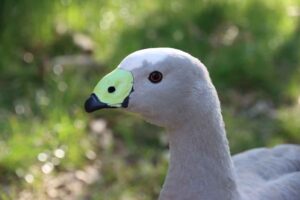
Another unique feature on Kangaroo Island is its population of Cape Barren Geese, one of the world’s rarest and most under-studied goose species.
Geese, similar to humans, prefer facial symmetry in their mates so the Love Birds project aims to get closeup recordings of the KI population to assess their mating, breeding and distribution and to assess whether Cape Barren Geese with more symmetrical facial features have more ‘luck in love’.
Special facial recognition software developed by experts at the Flinders University BirdLab has been incorporated in the P2R app.
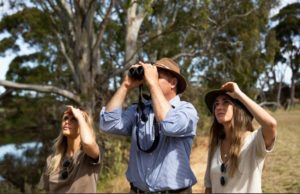
Road 2 Recovery invites visitors to ‘slow down for those who can’t speed up’ on KI roads. By helping to record wildlife crossing hotspots and roadkill densities, data can be collected to improve future road planning and traffic management.
While recovering from bushfires that burned through 38% of the island in 2020, Lonely Planet highlighted Kangaroo Island’s outstanding selection of food, wine, wildlife and beaches for its 2024 hotspot list.
Pipped only by the western Balkans’ Trans Dinarica cycle route, Lonely Planet’s Chris Zeiher, who wrote the Kangaroo Island entry, said Kangaroo Island/Karta Pintingga is “… blessed with amazing beaches, offers delicious food, wine, and spirits experiences, and delivers on the drama when it comes to outdoor adventures. And then there’s the wildlife!”
Find more information at the P2R website and download the P2R app https://www.passport2recovery.au/
Acknowledgements: The Passport 2 Recovery project is funded by the Australian Government Citizen Science program to enhance the public’s understanding of threats to biodiversity and climate change. The Passport 2 Recovery program will feature up to 12 activities to engage tourists and locals in the science of recovery, incorporating relevant Indigenous cultural knowledge (Caring for Country). The program is supported by SeaLink.

